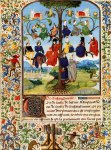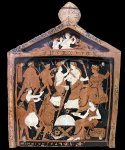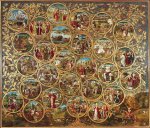accueil site > 45. Archives > 20. International > 02. GRUNDTVIG > 04. Vegetal languages in Europe > 10. Stories of vegetal > Faire l’arbre fourchu by Raffaele Giannetti
Faire l’arbre fourchu
by Raffaele GiannettiMonday 7 October 2013
Il ramo più alto era in realtà la radice più bassa.
(I. Calvino, La foresta-radice-labirinto)
Faire l’arbre fourchu is a very beautiful expression that shows the analogies of men and plants. But this expression tell us about another fact: according to the ancient Greeks, trees and plants are men turned upside down.
Now we present a very strange tree that grows not only in Tuscany or in the neighbourhood of Siena, but everywhere. This tree has given ancient olive tree – in archaic Greece – its shape and other qualities: a new branch, a shoot of olive tree could be named koros or kouros, like a young boy.
Moreover, we know that the olive tree, which Ulixes turned into his nuptial bed, is an image and a metaphor for the procreation of new citizens and for family memories. But what sort of a tree is it? It is a family tree, a genealogical tree!
We said that plants are like wrong side up turned men. So their roots are the mouth, or the organ they eat with. In former times, contrary to what we usually see and think, the family trees were themselves turned upside down. Some modern languages still show it precisely: the future generations are descendants! Don’t forget the term descent.
So the dead can’t live in trees o their leaves, which are green like life or where the living people are, but they can in the underground roots.
Our ancestors and forefathers are above us: we are, in fact, the descendants. Besides, we know that men want to search for their roots; but it takes too long to enumerate all the elements that plants and men share. The family tree itself is enough.
Here is a new etymologic conjecture: we think that the race – this fearful word – is derived from the latin term radix (root). Also in english the term race means either descent and ginger’s root.
We have linked the word race to culture and turned it away from biology; we are very pleased about it. We can suppose that Claude Lévi-Strauss, who wrote Race and History, would be very pleased too.
Raffaele Giannetti, teacher Tagliolini Fondation, San Quirico, IT
















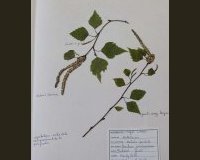
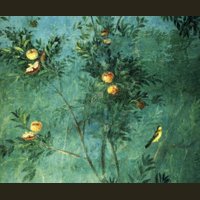
 Printable version
Printable version